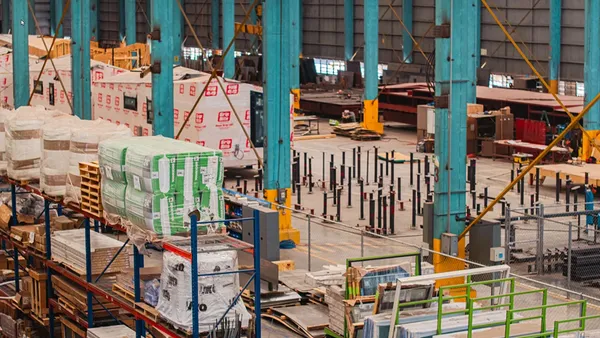Dive Brief:
- One construction worker was killed at a jobsite in Raleigh, North Carolina, on Tuesday when an area being excavated collapsed, according to the project’s general contractor Harold K. Jordan & Co. Two other workers, WTVD ABC11 reported, were injured and hospitalized.
- Jordan & Co. said the individual who died worked for Vertical Walls Inc., an independent contractor hired by site work, utilities and paving subcontractor Honeycutt Construction Services Inc. Vertical Walls was excavating in preparation for retaining wall construction and readying the area for a stormwater retention pond.
- Raleigh Department of Development documents identify the site as the future home of the 392-unit Piedmont Apartments complex. Jordan & Co. said it brought an OSHA safety consultant to the project site when work started in November to make sure the general contractor was in compliance with all safety standards.
Dive Insight:
This incident will likely kick off an investigation by OSHA and the North Carolina Department of Labor, particularly because it included a fatality as well as injuries.
OSHA, however, will investigate and impose heavy fines on a contractor even without such an incident, if it considers the site conditions to be unsafe. In April, for example, the agency cited a Michigan pipeline contractor, Kamphuis Pipeline Co., with trench-safety and other violations on a jobsite in North Dakota and proposed a fine of $454,750. OSHA said the contractor was exposing employees, who were installing water-metering pits and lines, to trench cave-ins and other serious hazards. It cited Kamphuis for failure to identify, correct and protect workers from hazards and for an absence of adequate trench protective systems.
While no information is available yet as to who is at fault in the Piedmont Apartments incident, it should serve as a reminder to all general contractors of a recent decision by a U.S. Appeals Court that ruled that OSHA can cite general contractors — even if their employees are not affected — for subcontractor safety violations.
The court said a general contractor could be held responsible as the controlling employer on a multi-employer jobsite. Coincidentally, the case that spurred the review involved general contractor Hensel Phelps and a subcontractor that hired a third-party "sub-sub" to perform excavation work. That case is headed back to the Occupational Safety and Health Commission for reconsideration.














